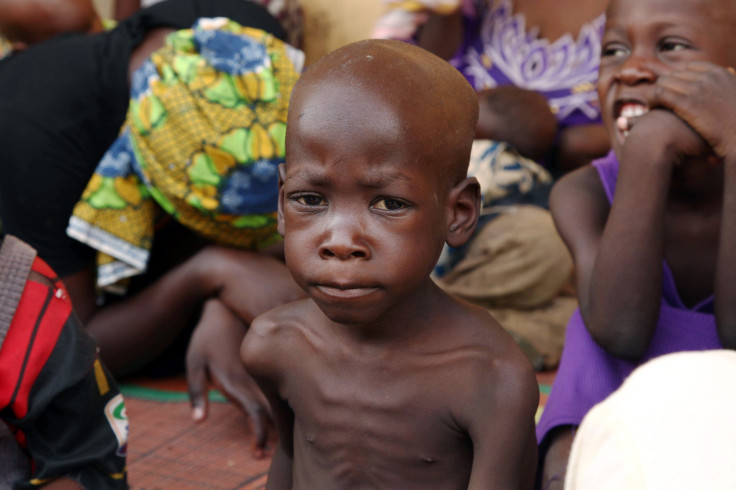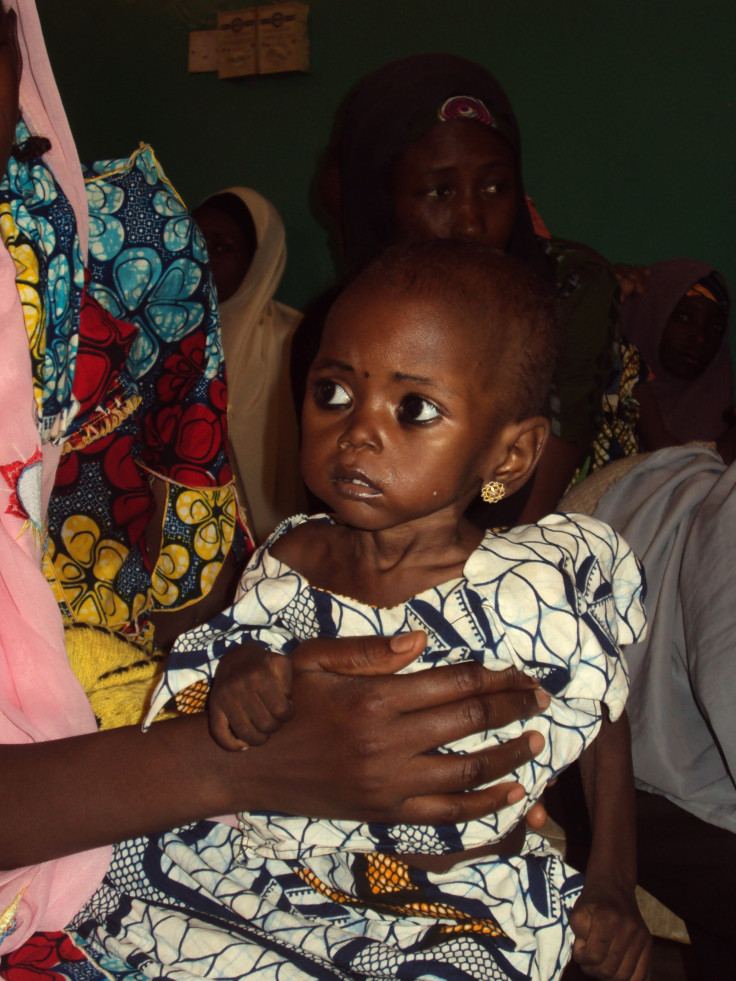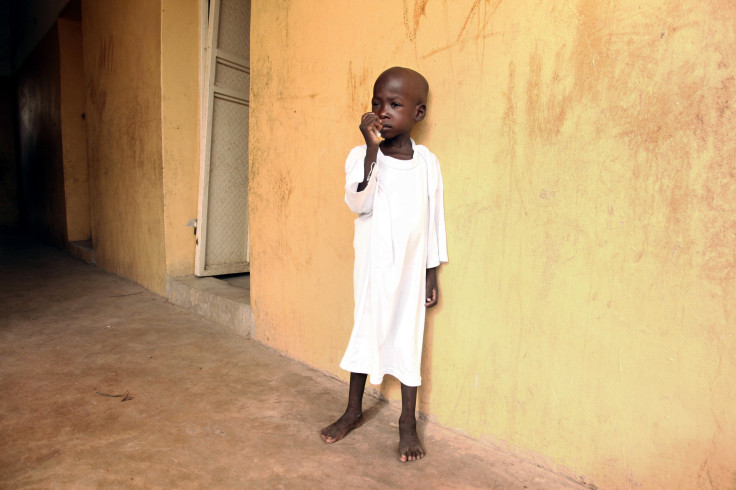Nigeria Battles Child Malnutrition Amid Boko Haram Insurgency

While battling Boko Haram insurgents in the north, Nigeria is also fighting an uphill battle against child malnutrition. Nigeria is now home to about 1.7 million "severely acutely malnourished children" under age 5, who account for one-tenth of the global tally and are in dire need of life-saving treatment, the Nigerian government and Unicef said Monday. Nearly 1,000 Nigerian children die from malnutrition-related causes each day, adding up to 361,000 deaths every year.
A program that treats malnourished children from age 6 months to 5 years, called Community-based Management of Acute Malnutrition (CMAM), started in Gombe and Kebbi states in 2009. It has since been extended to 11 other northern Nigerian states, where malnutrition poses the gravest threat. The treatment program, which costs $160 per child, has reached more than a million Nigerian children and has cured more than 830,000. But Unicef and the Nigerian health ministry said Monday the program must be expanded in order to save more lives.
“We must scale up CMAM in Nigeria. It is a proven high-impact intervention that is saving lives and helping Nigerian children reach their full potential through a good start in life,” Unicef Nigeria Representative Jean Gough said in a statement Monday. “We need greater investment in Nigeria’s future by investment in good nutrition.”

Despite the recent efforts to fight child malnutrition, Nigeria remains one of six countries that account for half of all child deaths worldwide, with 1 million children under age 5 dying each year and nearly half of them succumbing to malnutrition. Short of death, acute child malnutrition can also lead to stunting, cause lifelong physical limitations and reduced intellectual capacity. The damaging effects to a child's body by stunting are largely irreversible, Unicef says.
Despite Nigeria's large economy and rich oil reserves, more than half of its people live below the poverty line -- and poor families cannot afford the cost of a nutritionally adequate diet. Nigeria has the highest level of stunting in sub-Saharan Africa and the third highest in the world. Stunting, or chronic malnutrition, is a form of growth failure caused by poor maternal nutrition, poor feeding practices and poor food quality, as well as frequent infections that can slow down growth.
“The Government of Nigeria is committed to reaching more children with CMAM,” Linus Awute, permanent secretary of the Nigerian Federal Ministry of Health, said in a statement Monday. “We cannot accept that Nigerian children continue to die of malnutrition and that our potential future leaders should be diminished by its effects.”

Although child malnutrition in Africa conjures an image of a skeletal child with wide eyes and a distended stomach, they represent a small portion of children suffering from malnourishment, a joint document released by Unicef and Nigeria’s health ministry says.
“There are many children who do not look that way and yet they are also malnourished because they are not receiving the nutrients they need to grow and develop to their full potential,” the report stated. “Malnutrition is called a silent crisis because it can be happening around us, and we do not always know it is there.”
The Boko Haram insurgency in northern Nigeria has increased the threat of malnutrition and food insecurity in the region, the 2013 Nigeria Demographic and Health Survey says. The Islamist militants have razed homes and farmland, causing hundreds of thousands of residents to flee. Although the Nigerian military has recaptured some territory from Boko Haram, the villages have not been rebuilt and some farmers are too afraid to return home.
© Copyright IBTimes 2024. All rights reserved.











